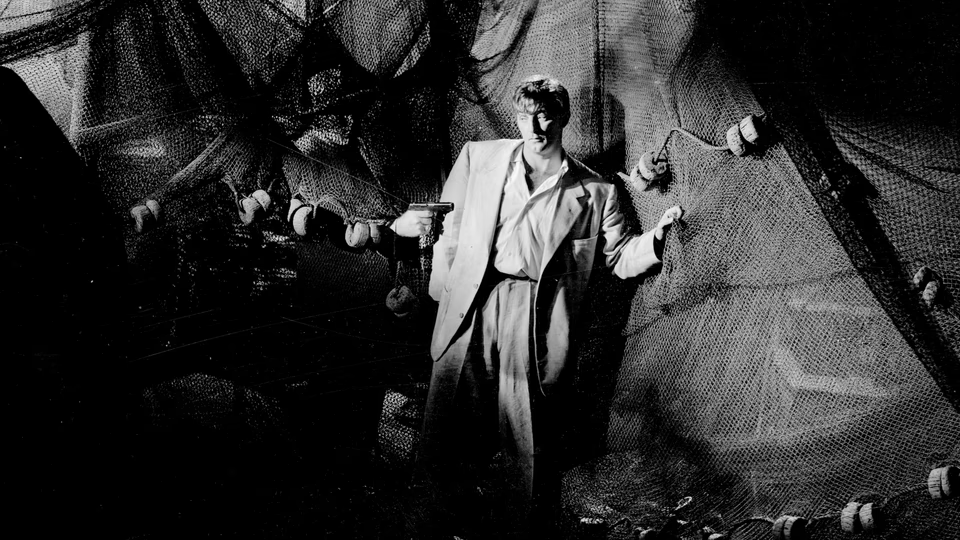Macao

A drifter (Robert Mitchum) and a nightclub singer (Jane Russell) find themselves mixed up with a crime boss shortly after arriving in the Portuguese colony of Macao.
Macao shouldn’t be this good. According to the IMDb, producer Howard Hughes fired director Josef von Sternberg about a third of the way through production and replaced him with Nicholas Ray. About this time, lead Robert Mitchum himself reportedly wrote several scenes so that the script would make more sense. Topping it off, Gloria Grahame, who plays the local crime lord’s moll, was in the process of divorcing Ray and purposely overacted in order to get back at Hughes for forcing her to do the movie.
Yet, despite all this behind-the-scenes drama, the film is a tight, entertaining, little film-noir adventure that maximizes the charms of its two leads, Mitchum and Jane Russell.
Mitchum plays the cool, mysterious leading man to perfection, strolling through the film almost like a man who knows he’s in a movie. He’s so much fun to watch because he’s so easy to root for. His confidence is contagious. Opposite him, Jane Russell does a fantastic job as a sultry lounge singer, and the chemistry between her and Mitchum is palpable.
Macao works by taking a solid noir story, setting it in an exotic and colorful locale, then playing up the action sequences as if it were an adventure film. It’s an interesting formula that works because there’s always something propelling the plot along, whether it’s Mitchum and Russell’s charisma or the action sequences. And to top it off, it’s all over in 81 minutes so it never wears out its welcome.
Fans of Mitchum and Russell will want to make Macao a must-see, as should fans of the film-noir genre, provided they can get past the story’s adventure tendencies.